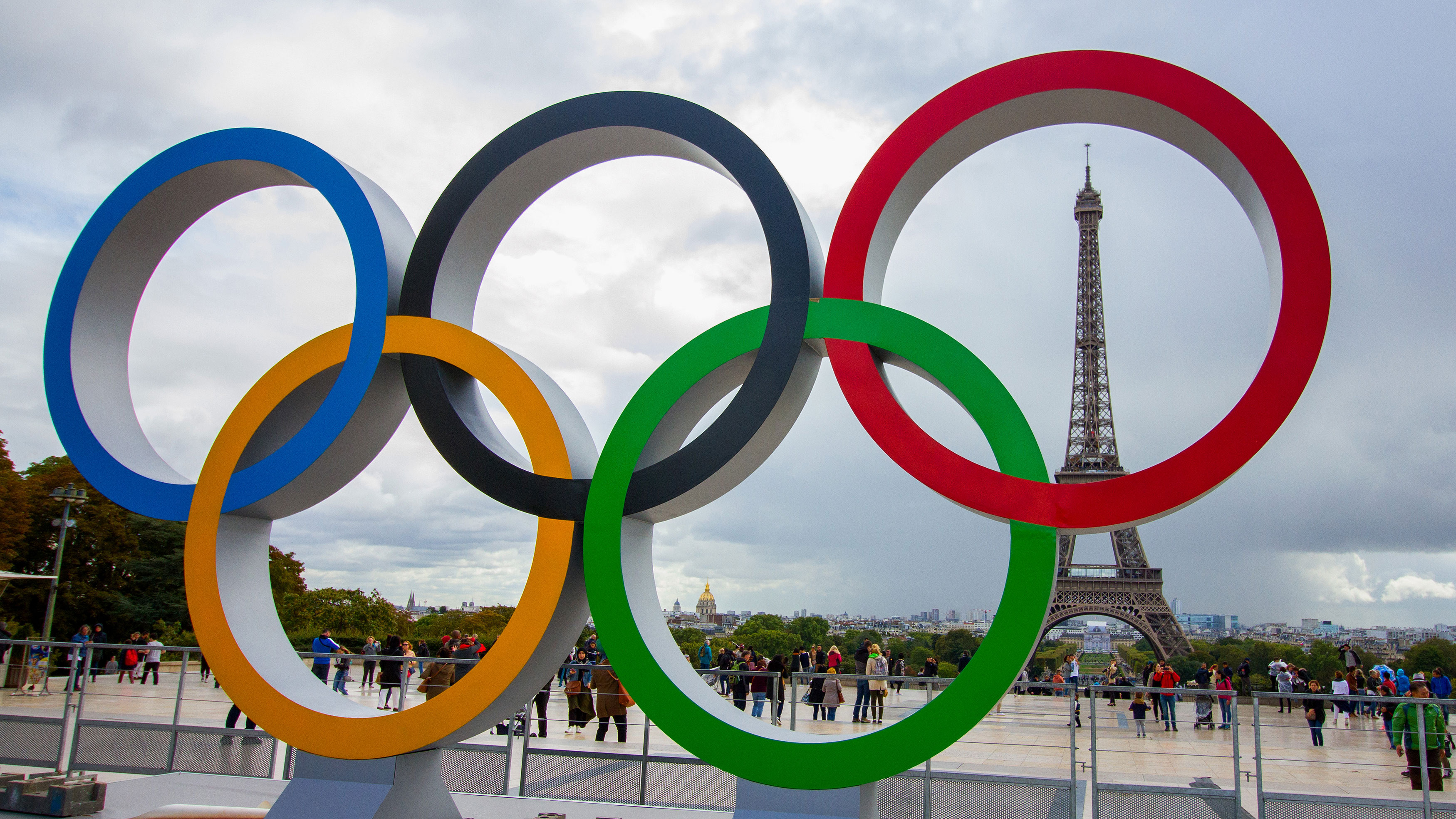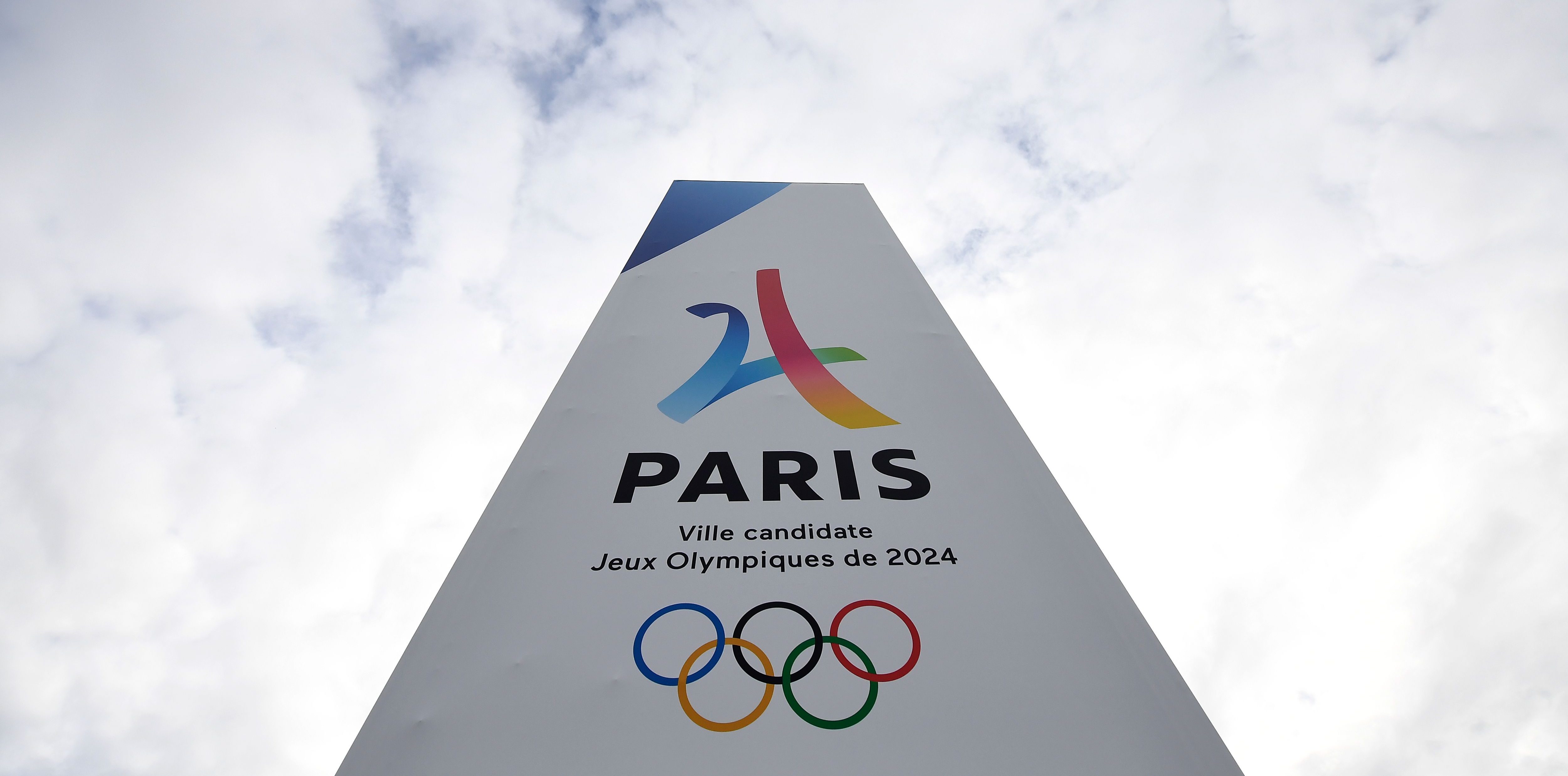Helen Maroulis, the first U.S. woman to win an Olympic gold medal in wrestling, talks about her passion for salsa and playing the harp.
Wrestling is a staple at the Summer Olympics.
The sport debuted at the very first Games back in 1896, and it's been on the card for all but one edition since then (1900).
But since those first matches 128 years ago, plenty of things about wrestling have changed. There are now different types of events, various weight classes and then women were added in 2004.
Before action gets underway in Paris this summer, here's everything you need to know about Olympic wrestling:
Get top local stories in Philly delivered to you every morning. >Sign up for NBC Philadelphia's News Headlines newsletter.
How does wrestling work at the Olympics?
Wrestling consists of two separate disciplines: Greco-Roman wrestling (based on the ancient sport) and freestyle wrestling (a more modern format).
Medals are awarded for each category of wrestling, with 12 events for men (six Greco-Roman, six freestyle) and six events for women (all freestyle) scheduled in 2024. So, there will be 18 gold medals in total awarded for wrestling.
Each category has 16 wrestlers in a single-elimination bracket-style competition. Athletes are knocked out one-by-one until there are two remaining to battle for the gold, while the bronze is awarded during the repechage match.
Here are the divisions for Paris:
Men's
- Greco-Roman bantamweight (60 kg, 132.277 lbs.)
- Greco-Roman lightweight (67 kg, 147.71 lbs.)
- Greco-Roman welterweight (77 kg, 169.756 lbs.)
- Greco-Roman middleweight (87 kg, 191.802 lbs.)
- Greco-Roman heavyweight (97 kg, 213.848 lbs.)
- Greco-Roman super heavyweight (130 kg, 286.601 lbs.)
- Freestyle bantamweight (57 kg, 125.663 lbs.)
- Freestyle lightweight (65 kg, 143.3 lbs.)
- Freestyle welterweight (74 kg, 163.142 lbs.)
- Freestyle middleweight (86 kg, 189.598 lbs.)
- Freestyle heavyweight (97 kg, 213.848 lbs.)
- Freestyle super heavyweight (125 kg, 275.578 lbs.)
Women's
- Freestyle flyweight (50 kg, 110.231 lbs.)
- Freestyle bantamweight (53 kg, 116.845 lbs.)
- Freestyle welterweight (57 kg, 125.663 lbs.)
- Freestyle middleweight (62 kg, 136.687 lbs.)
- Freestyle light heavyweight (68 kg, 149.914 lbs.)
- Freestyle heavyweight (76 kg, 167.551 lbs.)
What are the rules for wrestling at the Olympics?
Greco-Roman and freestyle wrestling have different rules.
In Greco-Roman, wrestlers can only use arms and upper body to attack the opponent above the waist. In freestyle, competitors can use their legs and can hold opponents above or below the waist.
But both styles have the same objective: pin the opponent's shoulders. They are contested on a circular combat area, with matches consisting of two three-minute periods. If neither wrestler is pinned during the bout, the wrestler with the most points at the end of regulation wins. Points are awarded by performing takedown and reversal moves.
Where is wrestling being held at the 2024 Olympics?
Grand Palais Éphémère in Champ de Mars, Paris, France, will host all wrestling events in 2024.
The temporary exhibition hall opened in 2021 and will be dismantled later this year after the Games. Judo events will also be held at the facility.
What is the schedule for wrestling at the 2024 Olympics?
Wrestling will take place from Monday, Aug. 5, through Sunday, Aug. 11. Here's the day-by-day schedule:
Aug. 5
- Men's Greco-Roman bantamweight (Round of 16, quarterfinals, semifinals)
- Men's Greco-Roman super heavyweight (Round of 16, quarterfinals, semifinals)
- Women's light heavyweight (Round of 16, quarterfinals, semifinals)
Aug. 6
- Men's Greco-Roman bantamweight (Repechage and final)
- Men's Greco-Roman super heavyweight (Repechage and final)
- Women's light heavyweight (Repechage and final)
- Men's Greco-Roman welterweight (Round of 16, quarterfinals, semifinals)
- Men's Greco-Roman heavyweight (Round of 16, quarterfinals, semifinals)
- Women's flyweight (Round of 16, quarterfinals, semifinals)
Aug. 7
- Men's Greco-Roman welterweight (Repechage and final)
- Men's Greco-Roman heavyweight (Repechage and final)
- Women's flyweight (Repechage and final)
- Men's Greco-Roman lightweight (Round of 16, quarterfinals, semifinals)
- Men's Greco-Roman middleweight (Round of 16, quarterfinals, semifinals)
- Women's bantamweight (Round of 16, quarterfinals, semifinals)
Aug. 8
- Men's Greco-Roman lightweight (Repechage and final)
- Men's Greco-Roman middleweight (Repechage and final)
- Women's bantamweight (Repechage and final)
- Men's freestyle bantamweight (Round of 16, quarterfinals, semifinals)
- Men's freestyle middleweight (Round of 16, quarterfinals, semifinals)
- Women's welterweight (Round of 16, quarterfinals, semifinals)
Aug. 9
- Men's freestyle bantamweight (Repechage and final)
- Men's freestyle middleweight (Repechage and final)
- Women's welterweight (Repechage and final)
- Men's freestyle welterweight (Round of 16, quarterfinals, semifinals)
- Men's freestyle super heavyweight (Round of 16, quarterfinals, semifinals)
- Women's middleweight (Round of 16, quarterfinals, semifinals)
Aug. 10
- Men's freestyle welterweight (Repechage and final)
- Men's freestyle super heavyweight (Repechage and final)
- Women's middleweight (Repechage and final)
- Men's freestyle lightweight (Round of 16, quarterfinals, semifinals)
- Men's freestyle heavyweight (Round of 16, quarterfinals, semifinals)
- Women's heavyweight (Round of 16, quarterfinals, semifinals)
Aug. 11
- Men's freestyle lightweight (Repechage and final)
- Men's freestyle heavyweight (Repechage and final)
- Women's heavyweight (Repechage and final)
What countries are the best at wrestling at the Olympics?
The United States has the most combined medals (Greco-Roman, Freestyle men's and women's) with 138. But the Soviet Union, despite not competing since 1988, still leads all nations in most combined gold medals with 62 (leading the Team USA's 55).
Russia, which competed in 1908 and 1912 before rejoining in 1996, was the best overall nation at each Olympics from 1996 to 2016 before Japan claimed the crown when it hosted the 2020 Tokyo Olympics.
The Soviet Union leads all nations in Greco-Roman with 34 gold and 60 total medals, just ahead of Sweden with 20 gold and 58 total medals. Freestyle (men's and women's) has been dominated by the U.S., with 52 gold and 123 total medals combined across both genders.





